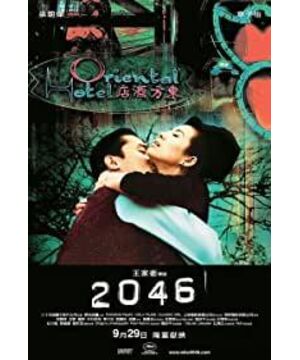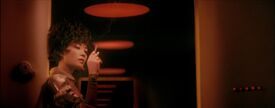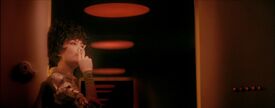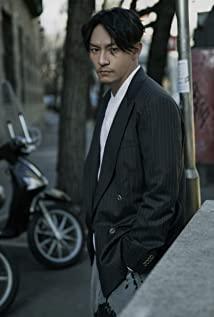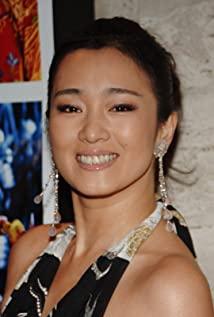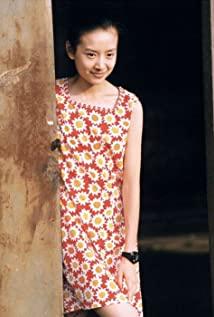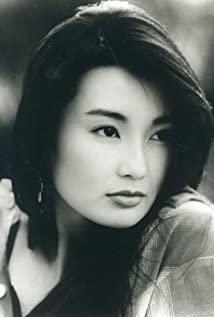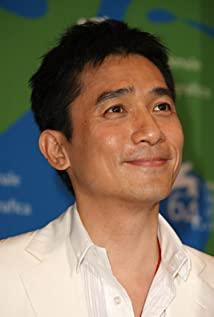After watching a few Wong Kar Wai films, let’s compare Director Wong’s earlier “Chongqing Forest” with this “2046”. The two films also have some Wong Kar-wai-esque emphasis, but they feel completely different. The former's keys, cans, and pizzas are messy and bumpy, and these bits and pieces almost occupy the audience's mind; the latter's 2046, 2047, pens, and key unlocking are much smoother, almost all of which appear to pass on the plot. , which is less attractive to the audience by comparison.
To be a metaphor of having a preference and hurting a friend, the former is similar to a young lady in my friend (no sexism), she often talks about some objects in life, but always asks in a dead end, which is naive The problem of entanglement and feeling unconnected with life; the latter is like the old palace far away in Beijing. He also borrows these similar objects and hangs them on his lips, but when he speaks them, he also speaks about the bits and pieces of his life. Wisdom, seems to have smoked a cigarette and flicked the ashes.
Without further ado, let's watch the movie "2046". I learned that Wong Kar-Wai was the first to know that he was a master of color, so I paid attention to the use of color in it.
In the first part, about 20 minutes, I didn't realize the effect of those cluttered colors, I ignored it, forgot it, or even had no impression.
In the subsequent episodes, at least 5 tones appear in a cross-progressive manner, and 5 tones are mixed to become the main color: viscous dark yellow (blue-gray, this part of the tone is more complex, simply yellow), throbbing pure red, melancholy and bright cyan, calm, profound and sensible black, cybernetic silver full of virtuality. Finally, there is a final shade that cannot be called a color: the mottled color where everything ends (where Li Lizhen stands).
Color has at least three meanings. One is the character's inner emotions or even lust, inner feelings; the second is the character's state of existence, expressing the dimension of time and space; the third is to express the age change that the character Zhou Muyun should have, or to express his inner growth.
Say it first. Zhou Muyun was first noticed by me. It was about 20 minutes after the film started. He arrived at the hotel and discussed with the boss to live in 2046, but inexplicably decided to live in 2047. After that, the main color, the main color, is dark yellow. The one who accompanies him but still holds the pipa half-covered is red, bright red, who is always the one played by him and Zhang Ziyi (I forgot, just read it again, this is the problem, and I still strike while the iron is hot, annoying, people are not omnipotent) Dangling before lingering. Later, Zhou Muyun noticed Jingwen played by Faye Wong, and got to know each other, and the lust was sensational.
This time is different from when I was with Zhang Ziyi. The part with Zhang Ziyi is darker yellow, more like a hormonal rush. And the feeling of being in love with Jingwen is probably because Jingwen knows his heart better - he writes novels, and Jingwen has such reading ability and creative talent. It is written in the play. As a man, it is too difficult to resist. So spectacular red takes over the screen.
Zhou Muyun said, "This is my happiest summer, but unfortunately it's too fast." So Wong Kar Wai opened a window, echoing the strange beginning, making the logic of the narrative clear, expressing this with the novel "2046" fluctuation. It just so happens that Zhou Muyun's inner hope is expressed through the novel, hoping to be with Jingwen as long as possible - the Japanese protagonist of the novel faces Jingwen's robot-like silver with a cyan background (note the two cyan headlights on the left behind him) future. In the novel, Zhou Muyun's protagonist is melancholy, while the robot-like Jingwen is emotionless and cyber-oriented (there is also Wong Kar-wai's prediction, worry and expectation of the world of technology, which belongs to what I will tell this time. side branch, skip it).
Why is there Zhou Muyun's tangled part in it? When a Japanese man hugged Faye Wong, he said, "I feel warm, maybe because she is a robot." Here, the male protagonist's desire, lack, and loneliness are all included. Then the plot progressed and returned to reality. After "2046" was written, Jingwen, like Zhou Muyun's inner worry, married the Japanese who made the boss angry.
After that, he met Zhang Ziyi again, went out to eat, had a brief chat, and had a short pure black background (I really like that kind of black). At this time, the two are talking about things objectively, and it can be said that each other is calm. After that, Zhou Muyun went to Singapore, it should be, I didn't pay attention to the location. When he met Li Lizhen, he couldn't shake his lust any longer, and after kissing hard, he turned and left. Since Li Lizhen's appearance this time, the tones of the scenes are full of mottled, with a realistic rough and flexible texture, without the soft and lingering colors that poured over the audience before. As far as the character's mood or inner state is concerned, it seems that Zhou Muyun has used up all his strength, and he looks like a middle-aged person who has no choice but to do so.
The color connection of the audience and the inner state of the characters are ups and downs like this, and the waves are generally full of highlights. What drives these emotional shifts is the sense of time that color itself represents.
The title of the film begins, saying that "2046" is a place where everything is in the past. Accompanying this scene is a fast-running sky train. The protagonist in the train murmurs in Japanese and speaks with full of melancholy. The two headlights on the left behind him are very eye-catching and blue. Then the picture explanatory (and full of memory effect) returns to Hong Kong in the 1960s, and Zhou Muyun, played by Tony Leung, appears, and the corresponding women are dazzling and scattered. The melancholy blue, like the roots of memories, pulls the audience here, and the story officially begins.
And then at the moment of sticky yellow, as far as Tony Leung's figure can be, the surrounding background is full of dark or light yellow tones. This tone was first substituted by my usual warm tones, but later I found out that this was not the case (several rains were mixed with yellow light bulbs) Relevant, that scene is like a man with an itching heart watching a rain).
Yellow announces the presence of the character's soul at this moment, and hormones permeate this space. So Zhou Muyun peeped at Lulu (is that her name?); when the neighbors lived in, they made love loudly. Until the role played by Zhang Ziyi appeared, a few touches of red always appeared appropriately before the two embraced and kissed. Red then heralds the upcoming action, the next thing. The lust in the release lurks in the red and prepares the audience for it.
When Zhou Muyun borrowed the novel "2046" to return to the original scene, he could find that the first half was closed, and the revolving axis consisting of the past (recollection) - this moment (feeling) - the next moment (throbbing) was about to come to a standstill, so the new The color appeared: silver for the future. The story also gets a boost.
However, Silver is not present, it is the time in the novel "2046". Where, Zhou Muyun made a prediction that Jingwen didn't love him in her heart. So the male protagonist in the train verifies this prediction, the plot unfolds into the future, the future is mechanical, this melancholy man falls in love with a robot, and the robot's emotions are always a lot slower, which seems to be a compensation in the idea. All time is prolonged, even if the red color dominated by "Dasein" appears, it is fleeting, because it is illusory and hypothetical.
The robots, played by Faye Wong, Carina Lau, Maggie Cheung, Zhang Ziyi, and Dong Jie, who change their makeup like a montage, are in a future space where memories and ideas are intertwined. It's finally over, Zhou Muyun wants to write "2047", that is, a book about the present.
Different from "Chongqing Forest", Wong Kar-wai's maturity in this film is shown through the subsequent plot.
Hearing that the boss is going to Japan, and learning that Jingwen is married to a Japanese, Zhou Muyun wants to leave here. The final scene switched to Singapore, went to the casino, and met Li Lizhen played by Gong Li again. It seems that after the Jingwen incident and the conversation with Zhang Ziyi (is it Zhang Ziyi or Dong Jie?) in the restaurant, Zhou Muyun grew up. So after reuniting with Li Lizhen who is not Li Lizhen this time, the background tone of the film is much lighter, but it is more endearing and full of youthful withering feeling.
The mottled feeling promotes the formation of a new space. Zhou Muyun no longer indulged in his own feelings, but began to feel the world itself, the mottled color is the color of reality. I don't know if you feel that Gong Li's aura here is different from other heroines, and she has a more presence. I personally think that Gong Li is no longer the reflection of Zhou Muyun's heart at this time, while the other women are the revealing of his inner state in the plot. From this, we can jump up one level from the movie and watch the drama within the play. It can be seen that the male protagonist begins to entangle with the world, no longer so energetically pouring out all his love and grievances, but daring to face, daring to touch, and feeling a little powerless at the same time - life is not as accommodating to him as he does in his heart , even if he is the male lead.
From this, we can talk about the third meaning of the tone in "2046": the growth of the male protagonist.
The light yellow tone at the beginning gradually deepened and became sticky. This process experienced three women, one of which was the cause, and the other two, which can be regarded as Zhou Muyun's inner monologue, according to my opinion above. At first, he met Li Lizhen, Li Lizhen abandoned him, and then the hotel appeared. Before he moved in, he entangled with Lulu once or twice, and then it became more and more impossible. When I came back next time, Lulu actually died. The strange thing is that Tony Leung did not feel sad in his performance. It was like when we met the person we had a crush on for the first time, and then that person was taken away by others, and then we forgot about it (he and her).
But the commotion did not subside. So pay attention to other women and peep at other spaces. It was also at this time that I met Jingwen, but there was a process in the middle, and I was not directly with Jingwen, which was very narrative. This state has always been accompanied by the background of light yellow tones. With the appearance of the woman played by Zhang Ziyi, red is mixed in, and Tony Leung is very charming (before meeting true love, everyone seems to be a lover), Unfortunately, it's a game, because the background color is more and more frequent and thick yellow, and the lust needs to be released - non-stop sex, "beast" like.
Naturally, it didn't end well, the two separated, Zhou Muyun's true love came, dark yellow and red were intertwined, Jing Wen accompanied him until she fell in love, and the background was all red. At this time, Zhou Muyun's inner craving is no longer to vent, but to protect and cherish, so Jingwen can enter his heart and continue to write his novels, so that Jingwen went to Japan, but he didn't do anything. How to modify the ending of "2046".
When it comes to separation - can't say goodbye (the good thing about this film is that it fully combines the emotional states in songs such as "Red Rose", "Far at a Distance", "The Man in a Dream", "Under Mount Fuji", etc. Leave a gap and express it through different female protagonists), Jingwen has no intention of being with him, this is a miss, the previous person was sincere to him while he was indifferent and keen on animal desires-his heart grew again, after that A short scene from , Pure Black: Calm and Mature.
Although the black tone background is short, I value it more, and its importance to this film is no less than the other shades. Through the ten minutes or so of depiction in black tone, at least Zhou Muyun has experienced the stage of sudden growth in the event of a major event - this stage is a short but extremely rational stage. Otherwise, it will feel awkward to directly enter the mottled color, and it will be difficult to understand.
As for the mottled color, it has been mentioned earlier. It's amazing to use, the narrative space is expanded, the character status is developed, and the film structure is not as thin and flat as "Chongqing Forest", and richness comes from this.
The same can be compared to "A Fei Zhengzhuan". There is a gap of 14 years between "The True Story of A Fei" released in 1990 and "2046" released in 2004. A person has experienced life for 14 years, which is enough to become stable from young. I want to say that "The True Story of Ah Fei" is rebellious and full of youthful appearance. Wong Kar Wai may have shown the appearance of a teenager. Correspondingly, "2046" does not show youth, but a dynamic display of a person What is the process of transitioning from youth to middle age? The stretching of the state is also a demonstration of Wang Dao's basic skills.
I remember at the beginning of "2046", Zhou Muyun and the first Li Lizhen were playing cards and betting, but Li Lizhen did not dare to turn over the cards and turned away; near the end of the play, the second Li Lizhen calmly turned over the cards this time, the Ace of Spades, The smallest card, the one that will definitely lose, still faces it bravely. It must have been the Ace of Spades at first, but I just didn't have the courage to face it. A good movie can be described as a reflection of a director's heart. Here we see Wong Kar-wai's attitude towards reality.
The missing link between "A Feifei" and "2046" - youth, or how to enter youth - may exist in other Wong Kar Wai films that I haven't seen yet, looking forward to.
The film was released in 2004, and Director Wang has been in film for more than 20 years. Naturally, he has a unique feeling for life and reality. The foundation for Zhou Muyun to be three-dimensional may come from Director Wang's deep understanding of the emotional state of people's hearts. From this point of view, I feel that Tony Leung did not have the content that the performance should show, at least it lacked a little. And Faye Wong may have stepped on the due rhythm with her own purity. It's hard for me to say about the other actors, I didn't pay attention to the acting part.
In fact, we are now monopolized by the flowing cyber feast, so that we pay more attention to the appearance, and no longer delve into the mud and dirt at the bottom of things. Therefore, Wong Kar Wai may be dangerous among young people. He is too characteristic, and it is easy for us to label him as a master of color and as a literary director (this is how I knew him before this movie), and ignore him. Strong camera control ability and three-dimensional narrative level.
I remember that Guangxi came to me half a month ago. After a cup of tea, when it comes to reading, it is indispensable to talk about poetry. I rummaged through the bookshelf, pulled out "Night of the Sea God", and read several poems spanning more than 30 years in the time interval. Under the reading level, it can be said that the appearance has not changed, and the length of the text has become longer and longer. But hasn't his poetry changed in thirty years? changed, what has changed? Content can also be said to be taste.
2020.8.15 0.2
View more about 2046 reviews


